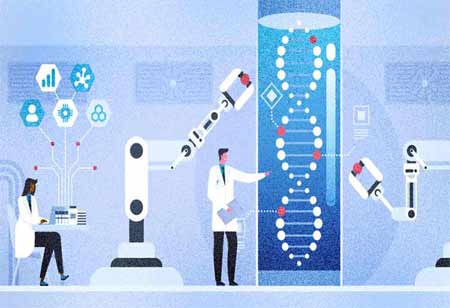Thank you for Subscribing to Healthcare Business Review Weekly Brief
Be first to read the latest tech news, Industry Leader's Insights, and CIO interviews of medium and large enterprises exclusively from Healthcare Business Review
Emerging Technologies and Treatments Shaping the Future of Oncology
The oncology landscape is rapidly advancing, driven by groundbreaking emerging technologies redefining the approach to cancer care.

By
Healthcare Business Review | Monday, July 29, 2024
Stay ahead of the industry with exclusive feature stories on the top companies, expert insights and the latest news delivered straight to your inbox. Subscribe today.
Emerging technologies, like precision medicine and immunotherapies, are transforming oncology by enhancing diagnosis, treatment precision, and overall patient care.
FREMONT, CA: The oncology landscape is rapidly advancing, driven by groundbreaking emerging technologies redefining the approach to cancer care. Advances such as precision medicine, which tailors treatments based on genetic profiles, and cutting-edge immunotherapies that harness the body's immune system to target cancer cells are at the forefront of this transformation. These innovations improve diagnostic accuracy and offer new treatment avenues that promise to enhance patient outcomes and survival rates.
Immunotherapy: Techniques such as checkpoint inhibitors, CAR-T cell therapy, and cancer vaccines are at the forefront of this revolution. Checkpoint inhibitors block proteins that typically prevent the immune system from attacking cancer cells, thereby boosting natural defences. CAR-T cell therapy involves modifying patients' T-cells to enhance their ability to recognise and combat cancer. Leading oncologists leverage these innovative therapies to provide personalised and effective treatment options for cancer patients.
Targeted Therapy: Targeted therapy focuses on specific molecules and pathways essential for cancer cell survival and proliferation. Unlike traditional chemotherapy, which can damage both healthy and cancerous cells, targeted therapy aims to minimise harm to normal cells, thereby reducing side effects and improving efficacy. This approach includes tyrosine kinase inhibitors and monoclonal antibodies targeting genetic mutations or proteins critical for cancer cell growth.
Precision Medicine: Precision medicine analyses a patient’s genetic makeup and the genetic alterations in their tumour; oncologists can identify the most effective therapies. This approach ensures that treatments are customised to the specific characteristics of each patient's cancer, improving the likelihood of successful outcomes. Advances in genomic sequencing and bioinformatics are making precision medicine more accessible and practical.
Liquid Biopsies: Liquid biopsies offer a minimally invasive diagnostic tool for detecting cancer-related genetic material in bodily fluids like blood. This technique facilitates early cancer detection, monitoring of treatment response, and identification of genetic mutations without traditional tissue biopsies. Liquid biopsies provide real-time information into tumour dynamics and help guide adjustments in treatment plans.






